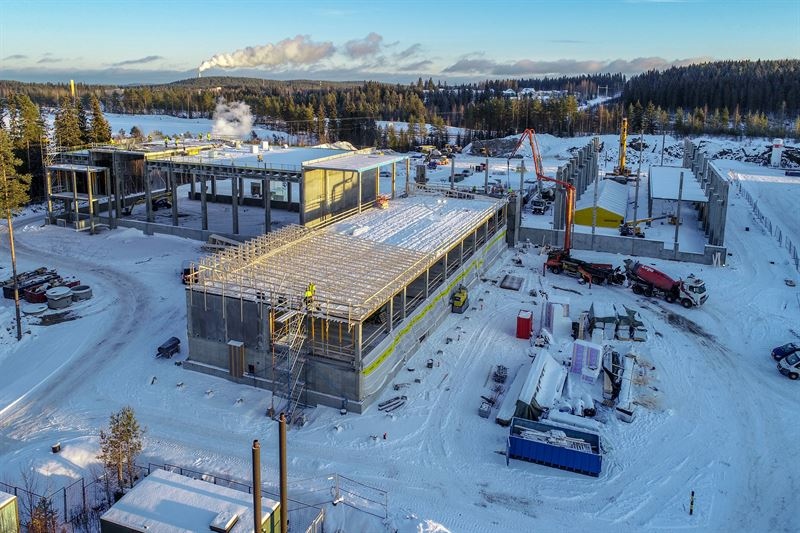
Spinnova and Suzano factory project in Finland makes headway
YarnsandFibers News Bureau 2021-12-06 11:41:44 – FinlandAccording to Spinnova and Suzano, the project is on track, and the manufacturing areas are expected to be ready for technological installations by the end of next summer (2022).
The facility is the first commercial factory of Woodspin, a joint venture between Spinnova and Suzano, and represents the first step in scaling up production of Spinnova's sustainable bio-based fiber to 1 million tonnes per year in 10 to 12 years.
Spinnova's technology can employ FCS-certified wood or cellulosic waste streams as the raw material for its namesake fiber, and the company claims that, unlike other cellulose-based fibers, it uses no dissolving, toxic chemicals, or side streams. Furthermore, because the chemical compound of the fiber is the same as that of paper, it biodegrades swiftly and does not shed microplastics.
Spinnova announced in February that it has formed a 50:50 joint venture with Suzano to build the EUR22 million (US$27 million) factory, which will be the first commercial-scale Spinnova manufacturing facility in Finland. The overall investment, which includes all necessary infrastructure and real estate, is expected to be around EUR50 million.
The new industrial complex will include Spinnova's headquarters and some of its product development responsibilities, as well as the joint venture Woodspin's fiber production and Suzano Finland's micro-fibrillated cellulose (MFC) refining.
Suzano's investment in the MFC refining plant is the company's first venture outside of Brazil.
Spinnova’s CEO and co-founder Janne Poranen, said that the pulp is shipped to Finland in sheets, which reduces the logistics' carbon footprint. The most cost-effective, energy-efficient, and climate-friendly approach is to integrate raw material refinement into the fiber process.
The factory's energy solutions were also created by Spinnova to ensure a low-emission facility that runs entirely on renewable energy and recovered heat. In addition, the firm intends to return any excess energy to the district heating system.
Poranen added that their process's only byproduct is evaporated water, which is mostly recycled back into the process. They don't require an environmental permit because of their clean production approach.
Market Intelligence
Ask for free sample Report

experience
Customer Base
dedicated team
Countries Served Worldwide









